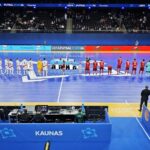After many delays, the decision is finally coming. Or, perhaps not?
On Tuesday, members of the Defence Council are expected to meet and make a recommendation to the government which fighter jets to choose. Prime Minister Andrej Plenković announced on Friday that the Defence Council would meet next week and that the procedure would then continue. The Council, which is comprised of the highest state officials, will be presented with all four submitted bids and with an analysis prepared by a special commission of the Ministry of Defence. The Council will make a recommendation, and the government will then make the final decision to procure 12 jets, reports Jutarnji List on March 25, 2018.
However, instead of recommending which type of aircraft should be procured, the Council might also recommend to the government to ask the bidders for the so-called BAFO – the best and final offer. In that case, the tender would be further extended, but Croatia would ultimately probably receive better financial and technical proposals.
The Council will consider four bids: new F-16 jets (USA), used F-16s (Greece and Israel), and new JAS39 Gripens (Sweden). According to widespread rumours, the favourites are the Israeli F16s and the Swedish Gripens. So, the decision will be about whether to choose old or new aircraft which should, according to Plenković, solve the future of the Croatian Air Force for the next 30 years.
The Ministry of Defence has not officially announced the details of the bids, but some information has been leaked. The Israeli media have recently published that Israel had offered to Croatia aircraft worth around 500 million dollars. These are F16 Barak aircraft that were manufactured in the late-1980s. This bid had encountered problems when the manufacturer Lockheed Martin complained that it had no information about the modifications which have been made by Israeli on the jets in the meantime. After the further check, the Israelis said that Croatia would not have any additional costs and that 500 million dollars was the final price. But, the question is whether this includes the cost of adjusting the infrastructure. Another problem is the age of the aircraft, which are supposed to be the backbone of the Croatian Air Force for the next 30 years.
With regard to the Swedish offer, the major problem is the purchase price. It is believed that Croatia cannot afford the cost of about 750 million euros for the aircraft. And, the purchase price is just one of several expenses. It is necessary to analyse the expenditure on the aircraft throughout its exploitation period and only then find out which offer is the most cost-effective.
The additional essential element is the economic cooperation with the state whose aircraft are ultimately selected. “In negotiating the contract, our task is to make it a basis for strengthening the economic cooperation so that the key element is investments in the Croatian economy,” said Defence Minister Damir Krstičević.
Translated from Jutarnji List (reported by Krešimir Žabec).







